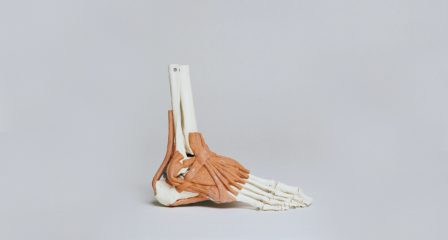All too often, the focus of both client and practitioner can be on the short to medium term recovery of a knee injury. This might be returning to work post injury, or returning to sport post operatively, in the 12 weeks to 12 months following the acute phase. Often however, this can be to the detriment of the long term health of the knee structures, particularly the joint cartilage. So what does the evidence say about 5 years or 10 years down the track?
As evidence based practitioners it is important that we help our clients achieve their goals, but equally important that we educate them adequately to make an informed decision. A recent study by Culvenor et al (2019), followed the recovery of 121 adults who sustained ACL injuries, across a 5 year period. The study found that those who opted for early surgical intervention (within 10 weeks of injury) had significantly greater losses of patellofemoral cartilage thickness, than those who opted for a delayed surgery or no surgery at all. The most significant cartilage changes occurring within the first 2 years post-operatively. In the setting of an athlete sustaining an ACL injury, and wanting surgery to immediately get back to their sport, this information is important to be passed on for an informed decision, and suggests this athlete should wait >10 weeks before considering surgical intervention.
A huge systematic review and meta-analysis published by Poulsen et al (2019) analysed the data of 1 million participants across 53 studies, to estimate knee osteoarthritis(OA) risk following ACL, meniscus or combined ACL/meniscus injury. The results:
- An isolated ACL injured knee is associated with 4 x higher odds of developing knee OA
- An isolated meniscal injury = 6 x the risk
- A combined ACL/meniscus injury = 6 x the risk
For 80% of the studies, the follow up period was more than 10 years, once again highlighting that the implications for a knee injury go beyond the short term goals of returning to work or returning to sport. The stats also highlight the fact that surgery does not have a protective effect on long term cartilage health, with reconstructions, meniscal repairs, and meniscectomies all within this group. Essentially, once you sustain an injury, you are at risk secondary complications such as early OA.
What can I do?
- Work with your physio to make well informed decisions that consider both short and long term goals. Discuss the place of both surgery and conservative management within this, including prehabilitation and post-operative expectations.
- Devise a rehabilitation, strength and return to sport program with your physio to minimise adverse load on the joint, and maximise your function.
REFERENCES:
Culvenor, A., Eckstein, F., Wirth, W., Lohmander, L., Frobell, R. (2019). Loss of patellofemoral cartilage thickness over 5 years following ACL injury depends on the initial treatment strategy: results from the KANON trial. British Journal of Sports Medicine 2019;53:1168-1173, doi: 10.1136/bjsports-2018-100157.
Poulsen, E., Goncalves, G., Bricca, A., Roos, E., Thorlund, J., and Juhl, C. (2019). Knee osteoarthritis risk is increased 4-6 fold after knee injury- a systematic review and meta-analysis. British Journal of Sports Medicine 2019;53:1454-1463, doi:10.1136/bjsports-2018-100022.



